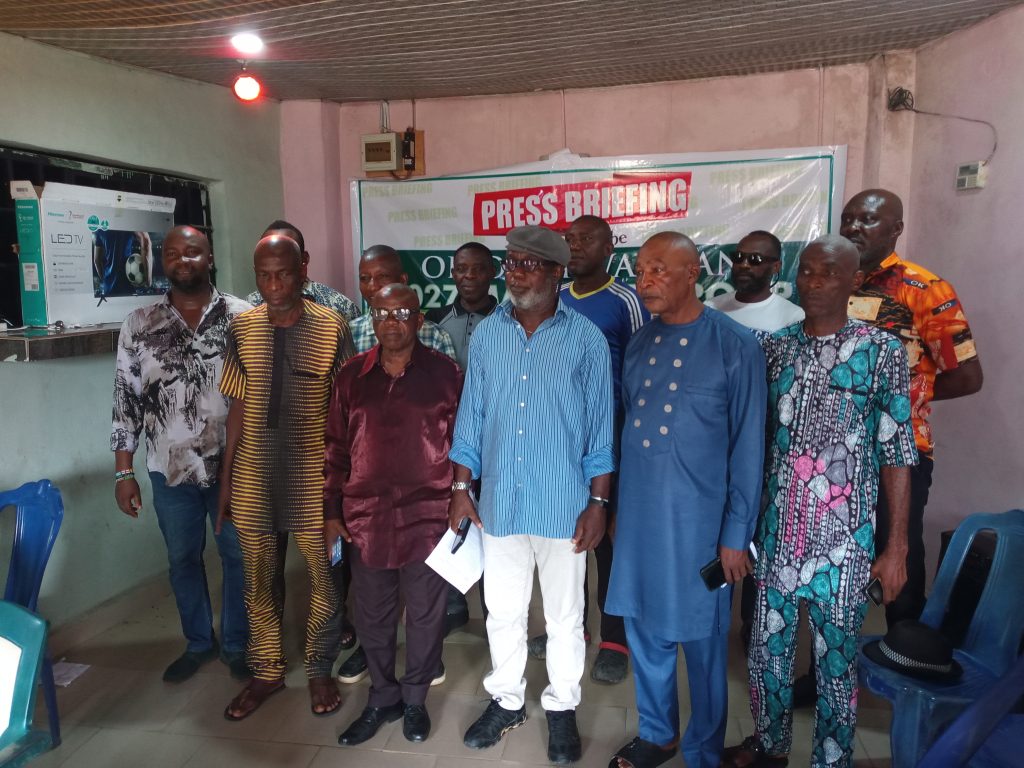News
Labour party crisis deepens: Supreme court ruling sparks renewed tensions amid factional divide
DDM News

The Labour Party (LP) of Nigeria has entered yet another season of confusion and leadership uncertainty.
The recent Supreme Court judgment failed to provide a definitive solution to the ongoing battle over the party’s national leadership.
Instead of bringing unity, the ruling has reopened old wounds and intensified internal strife within the opposition party.
The court ruled that it had no constitutional authority to interfere in the internal affairs of any political party.
This means that no court, not even the Supreme Court, can determine who should lead the Labour Party.
The Appeal Court’s earlier ruling that affirmed Julius Abure as National Chairman has now been deemed inappropriate and voided.
According to the Supreme Court, that judgment amounted to judicial interference in party matters, which is unconstitutional.
Therefore, no court in Nigeria has removed or confirmed Abure as national chairman since only the party can do that.
This ruling restores the Labour Party to a state of unresolved leadership, marked by conflicting factions and parallel authority.
The party is now split between those supporting the controversial Nnewi Convention and those firmly opposing it.
The Nnewi Convention, sometimes referred to as the “Magic Convention,” was organized without broad consultation among stakeholders.
Many within the party rejected the convention’s legitimacy and accused Abure’s camp of manipulating internal party processes.
The convention produced leadership choices that further polarized the party and led to multiple legal challenges.
Despite those setbacks, Abure had continued to act as National Chairman, citing the Appeal Court’s endorsement.
But with that endorsement now void, Abure’s position is again open to serious dispute.
The Labour Party first gained widespread popularity in the 2023 general elections.
With Peter Obi as its presidential candidate, the party attracted millions of youth and middle-class voters across Nigeria.
It campaigned on the promise of transparency, inclusion, and a new political direction for the country.
The party’s rise was seen as a breakthrough for Nigeria’s multiparty democracy and a challenge to entrenched political elites.
However, internal power struggles have continuously threatened its growth, cohesion, and future relevance.
One key development in resolving the crisis is the emergence of the Senator Esther Nenadi-led National Caretaker Committee.
This committee was constituted to serve as a neutral body to unify the warring factions and guide the party forward.
It has proposed a reform blueprint known as the “Umuahia Resolution,” which has gained increasing support.
The resolution calls for Abure and his loyalists to step aside temporarily for peace and proper restructuring.
It urges the caretaker committee to organize people-centered congresses and a transparent national convention.
This approach allows all aspirants, including Abure, to contest fairly for any position within the party’s leadership.
Observers believe this could be the only path to restoring peace and internal democracy within the party.
Retaining power through legal loopholes or factional control will only deepen the crisis and alienate party members.
Many fear a mass exodus of disillusioned supporters if the conflict remains unresolved.
Grassroots members are already demanding clarity, transparency, and unity from the party’s national leadership.
The Supreme Court’s ruling was not a win for any faction, but rather a cautionary note to the entire party.
It emphasizes the importance of internal democracy, fair play, and adherence to constitutional procedures.
Diaspora Digital Media (DDM) believes the Labour Party stands at a historic crossroads.
The path to redemption requires humility, reconciliation, and the political will to put collective interest above personal ambition.
Failure to embrace this opportunity could mark the end of the once-promising political movement that captured national imagination.
Only a credible, transparent process can restore the Labour Party’s fractured image and renew public trust in its mission.
The question now is whether the party’s leaders are ready to make that sacrifice for the survival of the movement.
For Diaspora Digital Media Updates click on Whatsapp, or Telegram. For eyewitness accounts/ reports/ articles, write to: citizenreports@diasporadigitalmedia.com. Follow us on X (Fomerly Twitter) or Facebook











